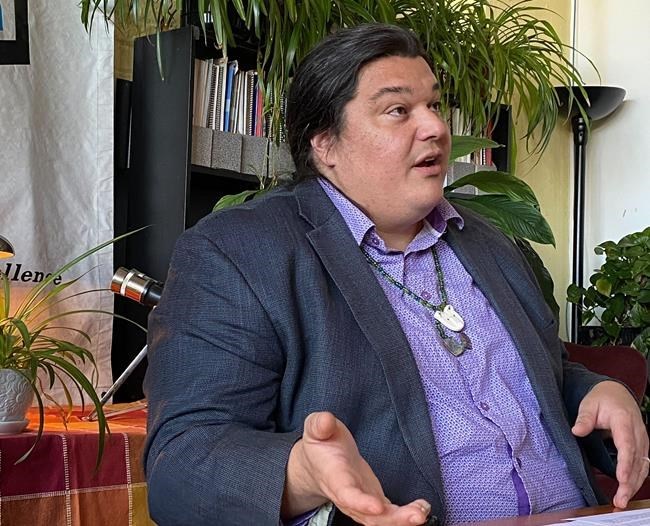MONTREAL — An Indigenous Quebec man who was denied car insurance because he lived on a reserve was the victim of race discrimination, the province's human rights commission concluded in a recent decision.
Alexis Wawanoloath, a lawyer and ex-Parti Québécois member of the legislature, told a news conference Thursday he welcomed the decision stemming from a complaint four years ago, but called it a partial win because the decision didn't look at the systemic nature of the situation.
"Yes, I experienced discrimination, but as I knew it had been experienced by plenty of other people, I wanted the commission to look at the systemic issue," Wawanoloath said at the offices of the Centre for Research-Action on Race Relations, which helped him with his complaint.
Wawanoloath, 40, brought the complaint in October 2018 after he was refused a car insurance quote because of his postal code in Odanak, about 120 kilometres northeast of Montreal.
He said the minute he gave the postal code, the woman at the other end of the phone said that they could not insure him because the address was on the reserve.
The commission released a decision last month that found insurance company Industrial Alliance was guilty of racial discrimination against Wawanoloath, a member of the W8banakiak First Nation.
The commission ordered the Quebec City-based insurance company to pay Wawanoloath $20,000 in moral and punitive damages. It also said the company had to ensure that any exclusion of geographical regions be based on "verified and verifiable elements" applied equally between Indigenous and non-Indigenous communities.
Wawanoloath noted that his complaint had initially been closed in 2020 by a rights commissions investigator who he discovered through a quick internet search also worked in the insurance industry. He complained about a conflict of interest and the inquiry was reopened with a different investigator.
Wawanoloath, the first Indigenous person elected to the Quebec legislature in 2007, said the experience with the company made him sad, angry and confused, especially after being elected and having worked to get a law degree.
"When I (got into) politics in Quebec, I tried to be a sort of bridge between nations, and after all this I still get refused because of where I live without any other explanation," he said.
In a statement, iA Auto and Home Insurance said it was apologizing again to Wawanoloath for the information provided in 2018 regarding Indigenous territories, calling it "unfortunately erroneous and incorrect."
The company said it has stayed true to a commitment in December 2020 to increase services offered to Indigenous territories regarding auto and home insurance. The company said it is also working closely with the human rights commission since the beginning of the case.
Fo Niemi, executive director of the race-relations centre, says the decision has an impact that goes beyond Wawanoloath. He noted the commission ruling mentions five other communities, unnamed, where there was at least a partial restriction in terms of insurance services.
"Because of his action, because of his speaking out, hopefully it will encourage other Indigenous individuals living in communities across Quebec to come forward," Niemi said.
Niemi said they'd hoped the commission would recognize the case as one of redlining — a discriminatory practice in the U.S. where financial or other services are denied to minority populations in certain areas. Niemi said the could be raised again should the case go to the tribunal stage. Industrial Alliance has until Nov. 11 to pay or escalate the case to the Quebec human rights tribunal.
This report by The Canadian Press was first published Nov. 3, 2022.
Sidhartha Banerjee, The Canadian Press

